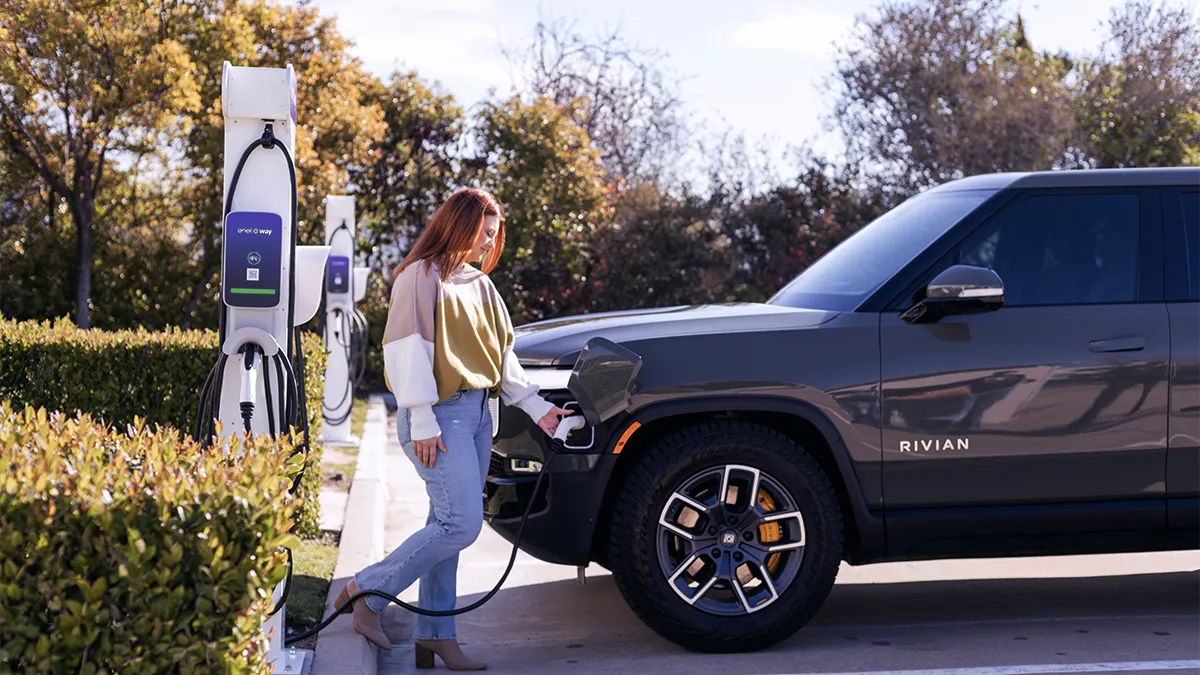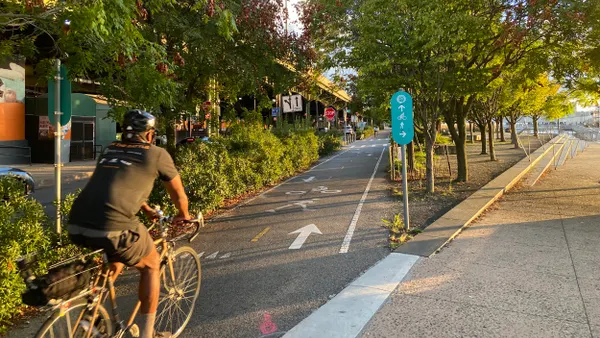Dive Brief:
- Xcel Energy’s plan to construct 460 direct current fast charger stations in Colorado has angered a coalition of retailers and other businesses that say the stations will discourage competition in the EV charging sector and unnecessarily raise customer bills.
- Allowing Xcel to own the stations will leave drivers with fewer options, according to Jay Smith, executive director of the Charge Ahead Partnership, or CAP. “Very few EV charging operators will open up shop in Colorado if a state-backed monopoly is allowed to unfairly compete by using ratepayer funds,” he said in a statement.
- Xcel says its proposal amounts to less than 10% of the stations Colorado needs to meet its EV goals, and they add a modest amount to customer bills. “There is room for all to participate in the clean energy transition,” the company said in response to CAP’s concerns.
Dive Insight:
Xcel subsidiary Public Service Co. of Colorado, or PSCO, filed its 2024-2026 Transportation Electrification Plan on May 15 with the state’s Public Utilities Commission, laying out a proposal that would add about 77 cents a month to an average residential bill.
Colorado wants to have 940,000 EVs on its roads by 2030 and Xcel says its plan will help to power one of every five vehicles in its service territory by that time.
The charger build-out “aims to fulfill a need for public charging that is essential to support the continued growth of EVs on Colorado roads and increase the availability of fast charging for all EV drivers,” Jack Ihle, PSCO regional vice president for regulatory policy, said in testimony describing the utility’s plan.
Along with public chargers, Xcel’s plan expands incentives for residential customers, “including with new infrastructure options to facilitate Vehicle-To-Home EV integration,” Ihle said.
For commercial customers, the utility is updating incentives and expanding equipment options to facilitate curbside EV supply infrastructure, allowing the company to assist municipalities developing charging solutions on city streets.
Xcel is also proposing a new “rental option” for battery energy storage systems to pair with third-party owned DCFC stations.
Gas stations, convenience store owners and other businesses say Xcel’s plan to own chargers makes it less likely they will install chargers.
“Proposals like this are anti-competitive,” said Ray Huff, president of HJB Convenience Corp. and an operator of several stores. Retailers “are ideal candidates to offer EV charging in the future ... But Xcel is trying to sideline these businesses.”
According to CAP’s Smith, some states have seen the danger in allowing utilities to dominate the charging market. He pointed to a $1 billion rebate program authorized by the California Public Utilities Commission last year which did not allow utility ownership of behind-the-meter charging infrastructure.
Xcel’s proposal is “out of step with other states,” Smith said.
But in a statement, Xcel said its transportation vision “is complementary to [Colorado’s] vision,” and a lack of charging infrastructure is widely seen as a barrier to EV adoption. The utility’s proposal leaves “significant room for non-regulated developer build-out,” Xcel said.
Supporting EV growth “will require action from many parties, including non-regulated developers, gas stations, communities, regulated utilities including Xcel Energy, and others,” the utility said.












